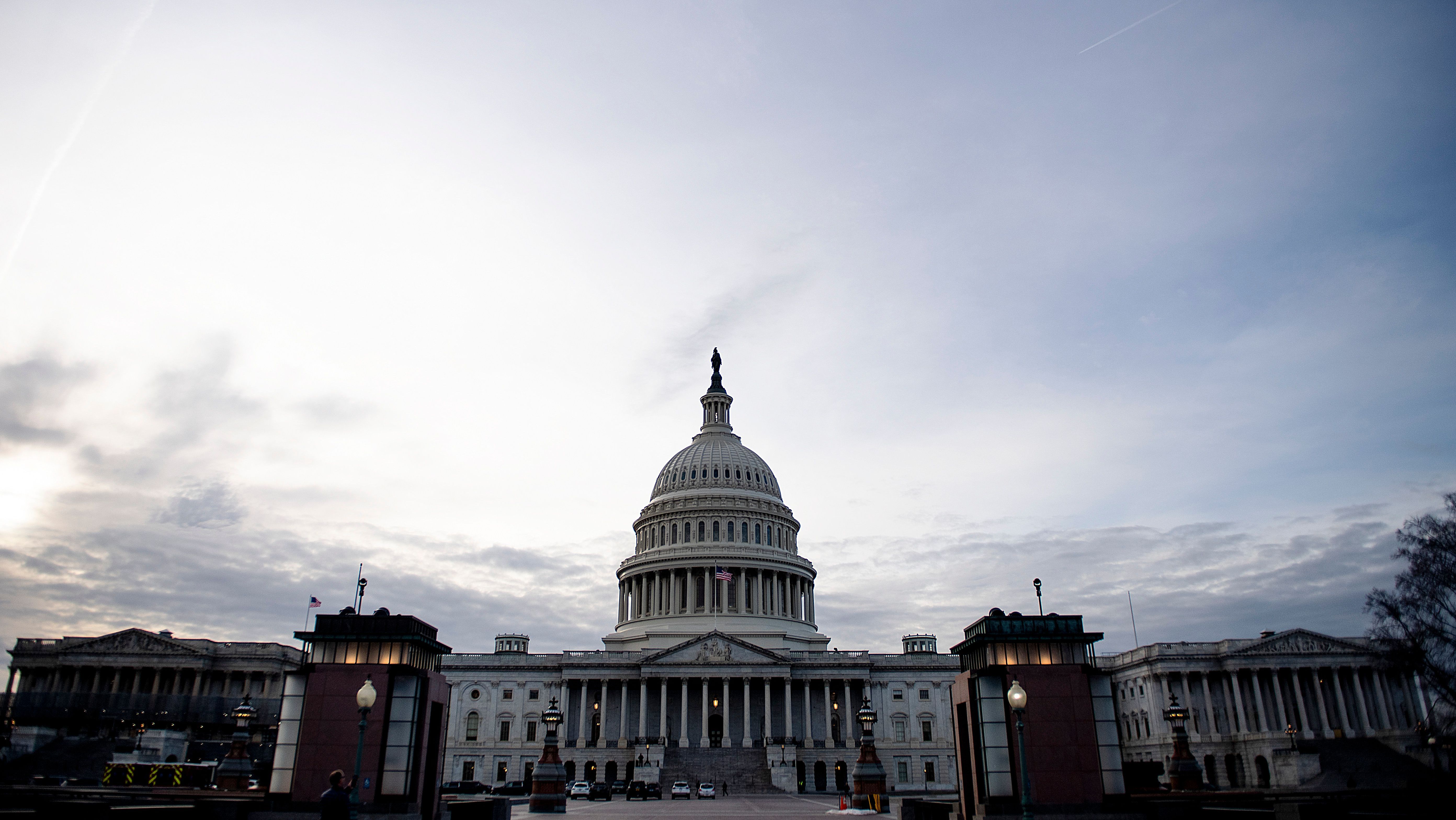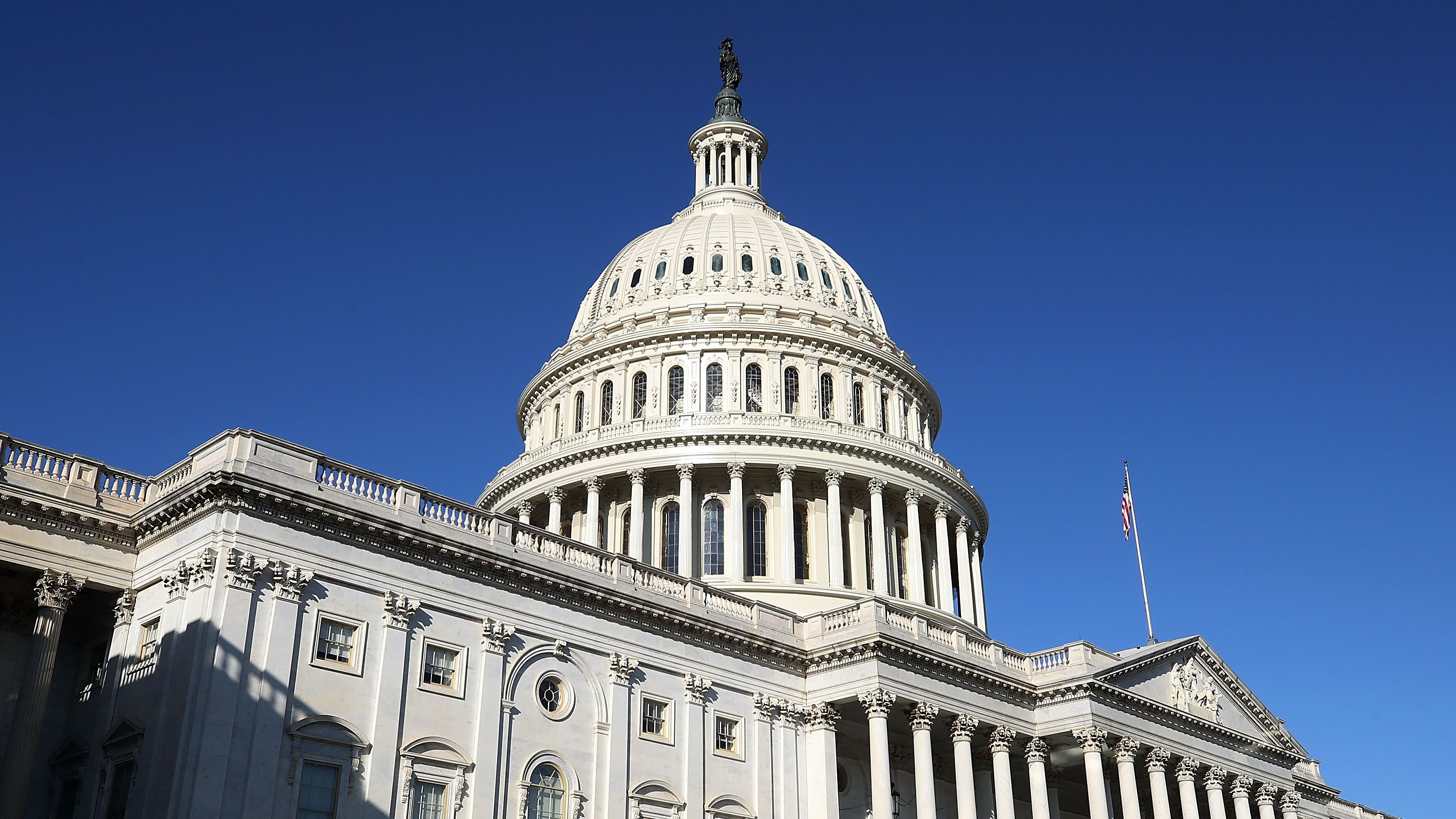How To Donate to the People Hit Hardest by the Government Shutdown
This year's partial shutdown of the federal government is the longest in U.S. history, having stretched out for over a month. Many of the people affected by were already living paycheck to paycheck.


As of this writing, this year's partial shutdown of the federal government is the longest shutdown in U.S. history, having stretched out for over a month. Imagine not having been paid since December, with no end in sight. That's the reality for more than 800,000 people right now.
Considering that government salaries are already on the lower side (14 percent are below $50,000 a year, per the Washington Post), many of the people affected by this shutdown were probably already living paycheck to paycheck. Having now missed two paychecks and counting, it's not hard to imagine people being forced to rely on food stamps or the local food pantry, unable to feed their families or pay their mortgage. Not to mention, many furloughed employees are still going to work, which is limiting their opportunities to make money from other work.
This is the time to give more support, not less. Thankfully, there are a number of easy ways you can do so. Here are a list of ways you can directly contribute to the people affected by the shutdown (by "directly," I mean via verified organizations and other methods that provide the right supplies to the right people).
With AmazonSmile, you shop for yourself as you would normally, but Amazon donates a portion of a purchase to a charity of your choice—with no additional cost to you. Feeding America, Capital Area Food Bank, and National Diaper Bank, all organizations that are helping furloughed workers, are listed as available charities.
If you want to support a charity that has stated they're assisting with the government shutdown (see some examples below), take a look to see if they have an Amazon Wishlist. It's like a registry, but for supplies, and nonprofits are often very good at updating it with the exact items they need.
For example: It Takes a Village, Baby! is a Virginia-based diaper bank. It has a wishlist for items that will help furloughed parents feed and clothe their babies.
Feeding America has a huge network of local pantries, and it's reached out to their communities impacted by the shutdown to distribute resources efficiently. That way, the furloughed workers can get what they really need, whether it's pop-up food pantries or extended hours or increased distributions.
Get exclusive access to fashion and beauty trends, hot-off-the-press celebrity news, and more.
Here's a directory of Feeding America's locations, but call ahead to see what you can do that would be most useful.
Many government workers live in Washington, D.C., so nonprofits are taking care to provide resources there. Capital Area Food Bank is offering free pop-up grocery distributions to furloughed workers, along with other flexible options for free food. It even has resources for you to host your own digital food drive for the most direct kind of assistance.
More than 1,800 furloughed workers have been turning to GoFundMe for their individual needs, raising more than $400,000 in the process. (Don't worry, GoFundMe has been verifying them individually to make sure funds are going to people actually impacted.) There are also fundraisers on the site from nonprofits that will distribute the funds among furloughed workers, like...
GoFundMe also launched a relief fund in partnership with author Deepak Chopra; seeing the thousands of individual campaigns inspired GoFundMe to start a larger initiative. Funds are being distributed directly to nonprofits providing supplies—"hot meals, necessary counseling, and housing relief." Right now, the fund has raised more than $359,000 and counting.
The nonprofit World Central Kitchen is also one of the organizations selected by GoFundMe. Through the #ChefsForFeds initiative, celebrity chef José Andrés is offering free hot meals in D.C., and is reaching out to restaurants, food trucks, nonprofits, and other businesses and people who want to help directly (as well as accepting donations towards their work).
Created by United Way, United for U.S. helps people impacted by the shutdown through supplies and other tangible resources. United Way donates 100 percent of funds towards financial services, counseling, and emergency services for food, lodging, and other necessities.
Another GoFundMe recipient, the National Diaper Bank Network, has 4,000 partner agencies supporting parents in need. Its local D.C. chapter is also directly distributing diapers and period products to workers who need it. Like a digital food drive, you can host your own diaper drive, which is especially useful in this context since there's only one product that's needed.
In D.C., local restaurants and bars are offering discounts to furloughed workers. Other businesses are also offering a variety of discounts, from plumbing and electrical housework to assistance with medical bills. Supporting these locations by giving them your business is another way to indirectly offer assistance. And look out for local gathering places like malls, airports, and churches that are hosting dedicated drives.
If you happen to live in a place where there are a number of affected government workers, you can also call your local food pantry or government office, such as the American Federation for Government Employees, to see exactly what you can donate, or ways to offer time or monetary support for those in need.
For more stories like this, including celebrity news, beauty and fashion advice, savvy political commentary, and fascinating features, sign up for the Marie Claire newsletter.
RELATED STORIES



Katherine’s a contributing syndications editor at Marie Claire who covers fashion, culture, and lifestyle. In her role, she writes stories that are syndicated by MSN and other outlets. She’s been a full-time freelancer for over a decade and has had roles with Cosmopolitan (where she covered lifestyle, culture, and fashion SEO content) and Bustle (where she was their movies and culture writer). She has bylines in New York Times, Parents, InStyle, Refinery29, and elsewhere. Her work has also been syndicated by ELLE, Harper’s Bazaar, Seventeen, Good Housekeeping, and Women’s Health, among others. In addition to her stories reaching millions of readers, content she's written and edited has qualified for a Bell Ringer Award and received a Communicator Award.
Katherine has a BA in English and art history from the University of Notre Dame and an MA in art business from the Sotheby's Institute of Art (with a focus on marketing/communications). She covers a wide breadth of topics: she's written about how to find the very best petite jeans, how sustainable travel has found its footing on Instagram, and what it's like to be a professional advice-giver in the modern world. Her personal essays have run the gamut from learning to dress as a queer woman to navigating food allergies as a mom. She also has deep knowledge of SEO/EATT, affiliate revenue, commerce, and social media; she regularly edits the work of other writers. She speaks at writing-related events and podcasts about freelancing and journalism, mentors students and other new writers, and consults on coursework. Currently, Katherine lives in Boston with her husband and two kids, and you can follow her on Instagram. If you're wondering about her last name, it’s “I go to dinner,” not “Her huge ego,” but she responds to both.